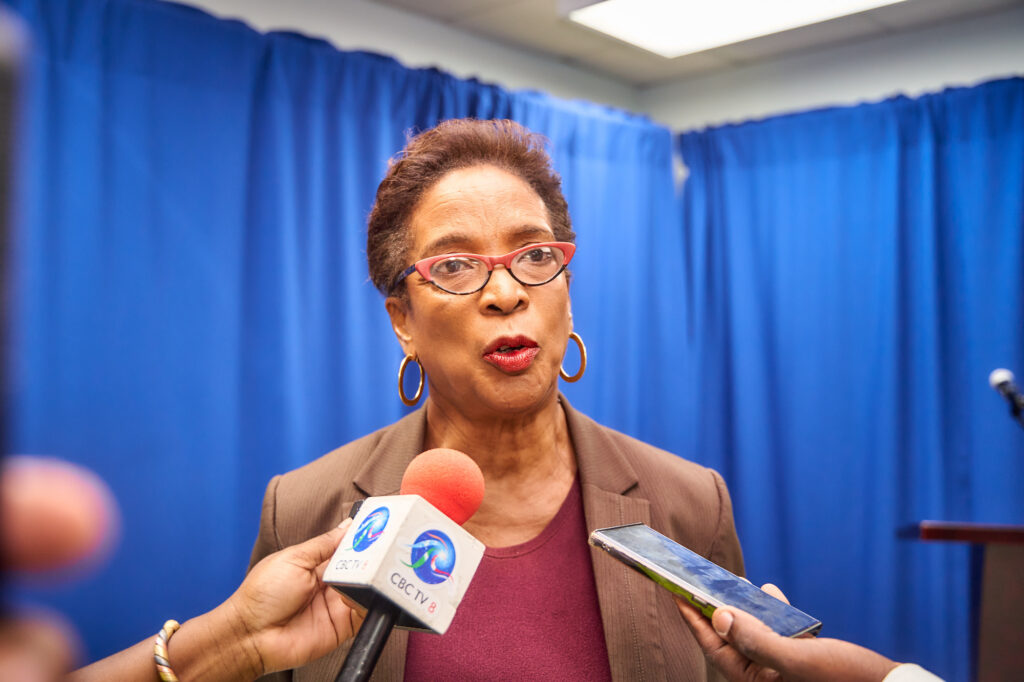The pilot of a potentially ground-breaking scheme to allow CARICOM nations to trade using each other’s currencies without a third-party currency is to start “soon”, Central Bank of Barbados governor Kevin Greenidge has revealed.
Greenidge, who chairs the CARICOM group of central bank governors, said regional governors agreed last month to push ahead with a Caribbean version of the Pan-African Payment and Settlement System (PAPSS) which was launched by the African Export-Import Bank (Afreximbank) in January 2022 to reduce reliance on hard currencies like the US dollar for transactions between African nations.
If successfully replicated in the Caribbean, the system could allow goods and services to be paid for directly in the currencies of the respective CARICOM nations involved, rather than being settled in a third currency like the US dollar. Proponents argue the payment system would reduce transaction costs, minimise the need for holding substantial foreign currency reserves, facilitate smoother intra-regional trade and lead to lower retail prices for consumers.
In October, 11 CARICOM central bankers unanimously agreed to adopt PAPSS as the preferred system for settling intra-regional trade transactions.
“We just had a meeting in May and we agreed to push ahead with the pilot programme,” Greenidge said. “We have a technical team working out some of the kinks, how to move ahead with the programme. We are approaching that as soon as possible.”
PAPSS enables payments across Africa without going through banks outside the continent. It would work similarly within CARICOM, Greenidge explained: “A company in Barbados selling to a Caribbean company… [would not have to] get foreign reserves. Why not just use Barbados dollars in Saint Lucia and EC dollars in Barbados?
“So it allows you to trade without having to resort to US dollars…. If you have that going you can see how quickly that could save trade,” he added, indicating that while intra-CARICOM trade could initially be facilitated using only the domestic currencies involved, any residual balances may still need to be settled in a major reserve currency like the US dollar.
Once the system is established regionally, Greenidge said connections could be made with the African system.
The central bank governor made the disclosures after appearing in a panel discussion on Navigating Economic Transformation in a Polycrisis World: Strategies for Global Africa as Afreximbank holds its annual meetings together with the third edition of the AfriCaribbean Trade and Investment Forum (ACTIF2024) at the Baha Mar Convention Centre in Nassau, Bahamas.
Host central bank governor John Rolle, addressing the opening ceremony earlier, highlighted the potential benefits of replicating PAPSS on a pan-Caribbean level: “A successful project in the Caribbean could keep us on pace to deliver on targets that are already being set for an international payment system that, even at the retail level, is more integrated, faster, and significantly cheaper for the average consumer.
“If we perfect multilateral cross border payments and settlements arrangement, it would also help us to conserve the use of precious international reserves, especially if we expand intra-regional trade.”
Greenidge said collaboration between the Caribbean – which he referred to as the 55th African state – and the continent was vital since “we can’t get where we want on our own”. He urged both regions to speak with one voice on reforming global financial architecture, accusing credit rating agencies of bias against small economies.
Greenidge, the senior economist who supervised Barbados’ economic restructuring programme for the International Monetary Fund before taking up the governor’s job in March 2023, said: “If we get with one voice and start to speak to these things, call for reforming the way the rating agencies view and assess our position, including debt, we will then make a difference,” he said on a panel that also included Rolle, Afreximbank senior executive vice-president Denys Denya, Nigeria’s former vice-president Yemi Osinbajo, and other experts.
“If you all get together, one voice and support things like the Bridgetown Initiative and what we are doing and calling for … I believe we can make a difference.”
The Bridgetown Initiative calls for reform of multilateral development banks and international financial institutions to better support climate-vulnerable countries.
The governor, who criticised the global financial system for a “natural bias” against small island nations, said collaboration with the much larger African market was vital for Barbados and the Caribbean to achieve sufficient financing and investment.
“The more we can achieve partnerships around the world, the better we are regarding financing and investment in Barbados and providing the necessary diverse products to do the financing we need,” he said. “Naturally, the African continent would be a partnership.”
The post CARICOM pilot of shared currency system ‘soon’ appeared first on Barbados Today.


